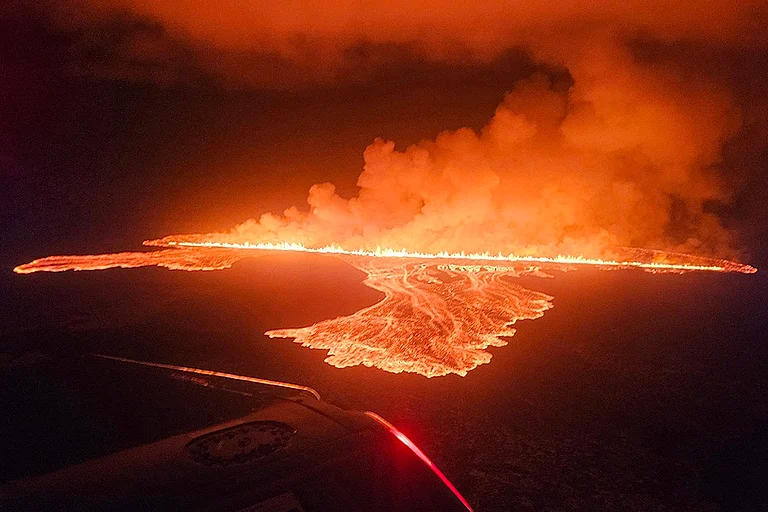
Summary of this article
Hayli Gubbi volcano in Ethiopia erupted for the first time in 12,000 years on Sunday morning, sending ash 14 km high
Volcanic ash cloud drifted across Red Sea, affecting Yemen, Oman, and reaching western India and Pakistan
DGCA issued advisory; multiple airlines including IndiGo, Akasa Air diverted or cancelled flights to prevent aircraft damage
Ash clouds expected to impact Delhi, Punjab, and Haryana; emergency protocols activated for runway safety checks
A major geological event occurred when the long-dormant Hayli Gubbi Volcano in Ethiopia erupted on November 23, 2025, for the first time in over 12,000 years. This powerful Ethiopia volcanic eruption produced an ash column reaching approximately 14 kilometers into the sky. The Hayli Gubbi volcano Ethiopia is located in the Afar region’s Erta Ale Range, near the border with Eritrea, and has had no recorded activity in the Holocene era until now. Satellite images tracked dense ash plumes moving westward, crossing the Red Sea and heading toward the Arabian Peninsula and eventually India. These developments have caused significant concern within meteorological and aviation sectors for their wide-reaching impacts.
Hayli Gubbi Volcano History and Eruptions
The Hayli Gubbi volcano history is marked by a prolonged period of dormancy and minimal geological study due to the remoteness of the region. The latest Hayli Gubbi volcano eruptions started explosively, with tremors felt in nearby villages and ash blanketing grazing lands and local infrastructure. The eruption sent massive ash columns across Yemen, Oman, and the Arabian Sea, creating hazardous conditions for commercial aircraft. According to the Smithsonian Institution's Global Volcanism Program, there is no documented history of previous eruptions during the Holocene period. Ash particles traveling at high altitude can severely damage aircraft engines and affect visibility, making aviation operations extremely risky in affected zones. Many local livestock herders in Ethiopia now face economic challenges due to ash-covered grazing lands, risking animal fodder shortages.
Impact on India's Aviation Sector
The Hayli Gubbi volcanic activity sent vast ash clouds affecting air quality and flight operations. India's aviation regulator, the Directorate General of Civil Aviation (DGCA), has issued comprehensive safety advisories instructing airlines to avoid routes and flight levels affected by volcanic ash. Several flights faced diversions and cancellations. An IndiGo flight from Kannur to Abu Dhabi was diverted to Ahmedabad, while KLM cancelled its Amsterdam-Delhi service. Airlines, including Air India, Akasa Air, and IndiGo, implemented precautionary measures and adjusted flight plans due to the Hayli Gubbi eruption impact. The DGCA mandated runway inspections and fuel recalculations for all affected operations.
Emergency Response and Precautions
Airport operators received instructions to inspect runways, taxiways, and aprons for ash accumulation. Aviation crews were directed to report any suspected ash encounters immediately, including engine performance anomalies. As ash clouds moved toward Delhi, Punjab, and Haryana, emergency protocols remained active to protect passenger safety and aircraft integrity throughout the region. Experts warn the ash cloud could also lead to unusually hazy skies and potential temperature shifts in northern India over the coming days.

























